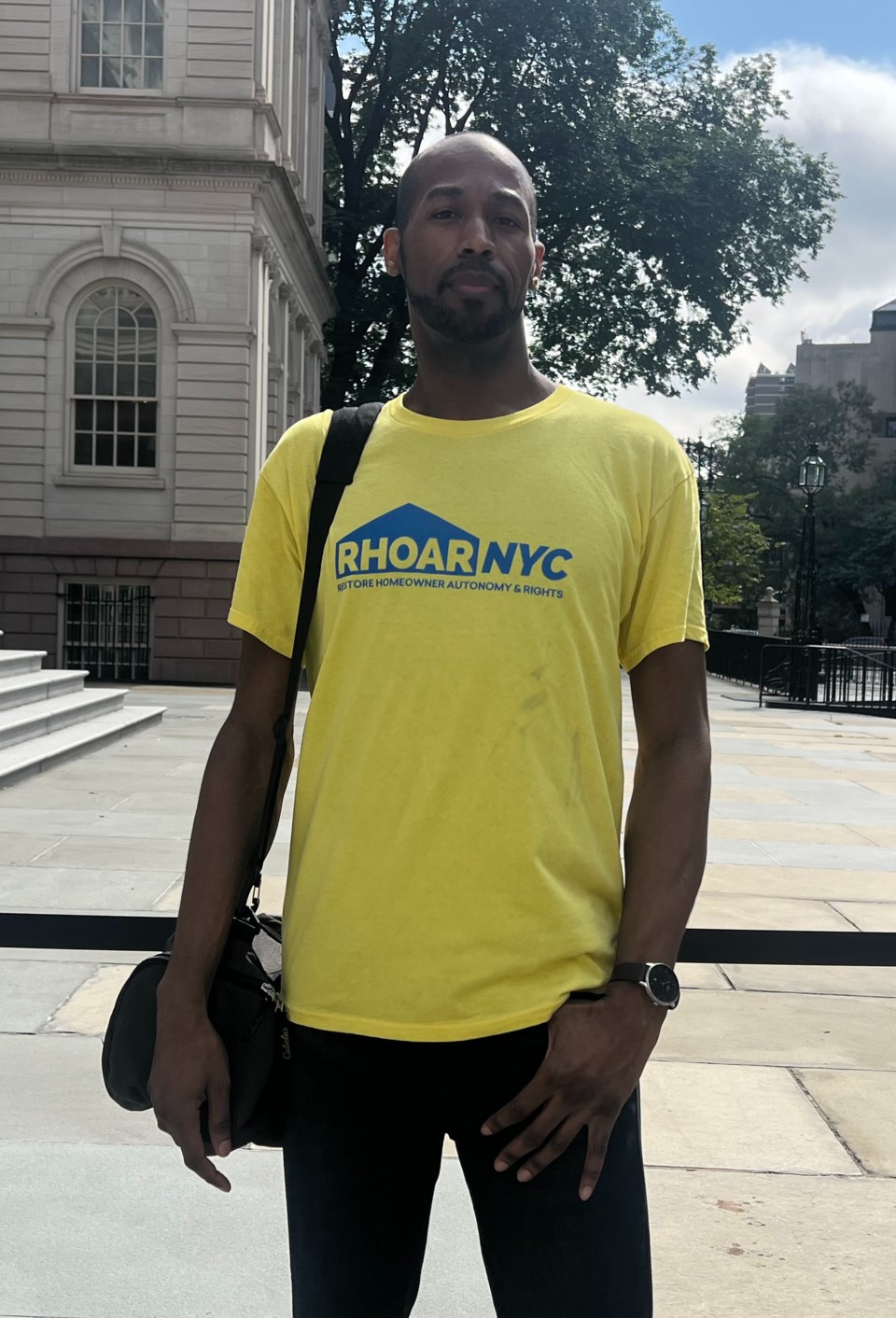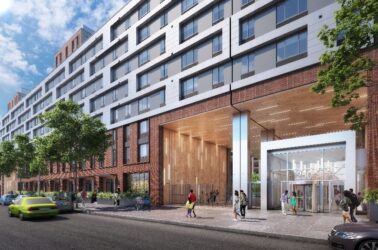By: Asar John
A coalition of homeowners rallied at City Hall on Wednesday, urging the city to amend a law that would allow them to resume short-term rentals and home sharing.
Homeowners who are part of RHOAR (Restore Homeowner Autonomy and Rights) NYC, a group of one- and two-family homeowners, are asking city officials to amend Local Law 18, which prohibits the short-term rental of homes for durations less than 30 days. In addition, the host must be present and have a maximum of two guests. Passed in February 2022, the law went into effect in September 2023.
Although some housing advocates claim short-term rentals decrease the number of affordable units, homeowners of RHOAR, half of which are people of color and almost 70% living in Brooklyn, say the law isn’t fair and prohibits them from making income on properties they outright own.
“New York City’s small homeowners are families who have fought hard to buy and keep up homes and create generational wealth for themselves and their families,” said Gia Sharp, a homeowner in Sunset Park. “Before you say, ‘Why are you buying a home that you can’t afford?,’ homeownership shouldn’t be reserved only for the wealthy – it should be attainable and sustainable for people like us, too.”
Not only that, many members say the lack of tourists in their neighborhoods also affects local businesses.
“We have 550 homeowners at this point and they live in all five boroughs– so they have local businesses who have told them the traffic has been lower since Local Law 18 has happened, they’re not seeing novel faces anymore,” Sharp said.
While Sharp understands that the law helps to address “bad actors,” or those who only own an apartment solefly for the reason to rent out to tourists, she said the law is otherwise too harsh.
Jason Mondesir-Caesar is a Bedford-Stuyvesant homeowner who said he previously managed an Airbnb rental in his home prior to the law. He used the extra income to pay his mortgage, which helped after his cousins, who co-owned the home, moved out in 2015.
“I had a regular tenant that lost their job and didn’t pay rent; I had someone who was on a city voucher, which wasn’t even enough to help me pay the mortgage,” said Mondesir-Caesar, who mentioned the tenant had damaged parts of the apartment and wouldn’t pay rent in full at times. “I just don’t have the bandwidth to have a bad tenant.”
Andres, another Bed-Stuy homeowner who declined to disclose his last name, said the income made from his rental was also a means to renovate his aging home.
“We planned on installing solar panels on the roof, which could be around $20,000 to $30,000, and we have leaks in the basement that could easily be $5,000,” he said.
Andres also said he’s skeptical about renting his unit out under the new rental law due squatter rights, which makes it hard for homeowners to kick unwanted tenants out after 30-days.
“Most people dream of buying a house, especially in New York, so if you can somehow manage it however you can, [in reference to having Airbnb rentals], I don’t see how that can be wrong,” he said.
Frank Wheatley, who purchased his Crown Heights home in 2020, said the money he made by renting his home out would subsidize his trips to see family in Missouri. Now, he takes less trips out to the Midwest.
“The obvious impact is that we can’t afford to go out there, it impacts the family bonding connection that we have, and now we’re down $10,000,” he said.
RHOAR is supported by Airbnb in the group’s public relations efforts, Sharp said over email.
“Airbnb supports all homeowners in their efforts to advocate for their rights, especially in NYC amid a historic affordability crisis,” Airbnb said in an email statement to BK Reader, noting that RHOAR is an independent, grassroots organization.




.png;w=960)








Leave a Reply